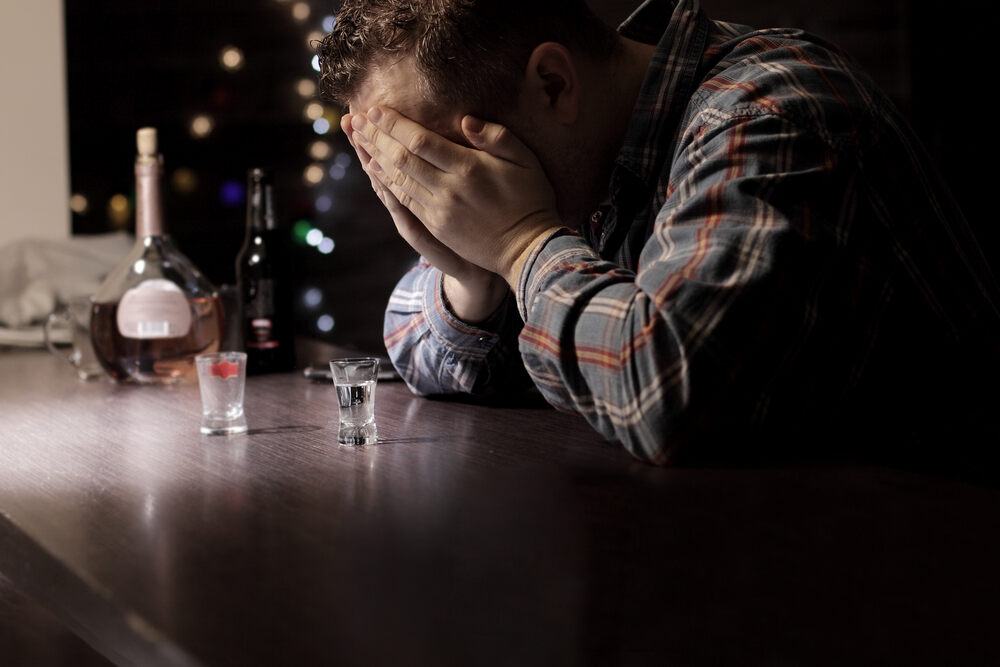Table of Contents
TL;DR:
- Relapse is common in recovery and it’s not a sign of failure.
- Building a strong foundation for recovery involves establishing healthy habits and support systems.
- Developing healthy coping mechanisms and avoiding triggers is essential for managing stress and navigating challenges without turning to substances.
- The 3 P’s of recovery – patience, persistence, and perseverance – are crucial for managing the stages of relapse.
- Recognizing the early signs of relapse, such as changes in mood or behavior, can be the difference between a minor setback and a full-blown relapse.
The journey to recovery from drug or alcohol addiction is tough, and staying sober after rehab can feel like an uphill battle. Relapse is something a lot of people worry about, but it’s not a sign that you’ve failed. It’s actually a common part of the process for many people.
The key to long-term recovery is understanding relapse and having the tools to prevent it – that’s what we’re here to talk about: how to prevent relapse.
Building a Strong Foundation for Recovery
Recovery doesn’t end when you leave rehab. In fact, that’s when the real work begins. Building a strong foundation for lasting sobriety involves establishing healthy habits and support systems that will carry you through the challenges ahead.
Avoiding Relapse Starts with Aftercare
Using tools to support your newly built sober life can help you navigate the early stages of recovery and reduce the risk of relapse. Here are some key components of effective aftercare and how to not relapse:
Continuing Therapy and Support Groups
Therapy offers a safe space to process emotions, develop coping mechanisms, and address any underlying issues that may contribute to substance use.
Support groups provide a sense of community and understanding, reminding you that you’re not alone in this journey.
Sober Living Environments
For some, transitioning from rehab to a sober living environment can be helpful. These structured living arrangements provide a supportive and substance-free space to practice new skills and build healthy routines.
Developing Healthy Coping Mechanisms
Life will inevitably throw curveballs your way, and it’s essential to have healthy coping mechanisms in place. They can help manage stress and navigate challenges without turning to substances.
- Stress Management Techniques: Incorporate self-care practices like meditation, exercise, mindfulness, or deep breathing into your daily routine to help you stay grounded and centered.
- Building Healthy Relationships and Support Networks: Surround yourself with positive influences who support your recovery.
- Identifying and Avoiding Triggers: Take the time to identify people, places, and situations that trigger cravings or tempt you to use substances. Develop strategies to avoid them such as changing your routine or setting boundaries.
- Setting Achievable Goals: Having goals to work towards and activities that bring you joy can give you a sense of purpose and fulfillment.
Building a strong foundation for recovery takes time and effort. Be patient with yourself and celebrate your progress.
The 3 P’s of Recovery and the 3 Stages of Relapse
A helpful way to understand relapse is through the 3 P’s of recovery
- Patience: Recovery takes time, and it’s important to be patient and understanding with yourself throughout the process.
- Persistence: Staying sober requires ongoing effort and a commitment to making healthy choices, even when it’s tough.
- Perseverance: Overcoming challenges and setbacks is part of the journey, and perseverance is key to staying on track.
The 3 P’s are crucial for managing the three stages of relapse:
- Emotional Relapse: You might start feeling down, bottling up your emotions, and withdrawing from others.
- Mental Relapse: Thoughts of using substances creep back in, you might romanticize past experiences, or start bargaining with yourself.
- Physical Relapse: This is when you actually use drugs or alcohol again.
By understanding these stages, you can better equip yourself to identify the early warning signs of relapse and take proactive steps to protect your sobriety.
Identifying Early Signs of Relapse
Recognizing the signs of relapse early on can be the difference between a minor setback and a full-blown relapse.
Shifts in Mood and Behavior
Pay attention to any noticeable changes in your mood, such as increased irritability, anxiety, or feelings of depression.
Also, be mindful of any behavioral changes, like withdrawing from loved ones or engaging in risky activities.
Rising Stress and Isolation
Notice if you’re feeling overwhelmed by life’s challenges or struggling to cope with stress in healthy ways. Increased anxiety and a tendency to isolate yourself from social situations can also be warning signs.
Revisiting Old Haunts and Habits
Be cautious if you find yourself drawn back to environments or social circles associated with your past substance use. Feeling tempted to revisit old habits or routines can be a red flag.
Specific Strategies for Alcohol Relapse Prevention
Alcohol addiction comes with its own unique challenges, and navigating those requires specific strategies to stay sober.
Alcohol is often a big part of social events, making it hard to avoid triggers. The social pressure to drink can be strong, so it’s important to have strategies to handle these situations with confidence.
Many people also use alcohol to cope with tough emotions or past traumas. Unresolved emotional issues can raise the risk of relapse, so it’s important to address them through therapy or other support.
Effective Coping Strategies for Alcohol Cravings
Cravings are a normal part of recovery, but managing them is crucial to avoiding relapse.
Distraction Techniques
Distraction techniques, like engaging in a hobby, calling a supportive friend, or taking a walk, can help shift your focus away from the craving.
Healthy Alternatives to Alcohol
Replacing old habits with new, healthy ones can be empowering. Try non-alcoholic drinks, explore alcohol-free activities, or join social groups that support sobriety.
Your Journey to Lasting Recovery
Preventing relapse after drug or alcohol rehab is an ongoing process that requires commitment, self-awareness, and a strong support system.
If you do experience a setback, don’t give up. Reach out for help, re-evaluate your strategies, and recommit to your recovery journey.
At Infinite Recovery, we understand the challenges of addiction and staying sober. Our programs offer a variety of evidence-based therapies, such as individual and group counseling, holistic approaches, and support for managing triggers and cravings.
We also provide sober living options, ensuring a safe and supportive environment as you transition to independent living.
Your journey to lasting recovery starts now. Contact Infinite Recovery today to learn more about how we can help you achieve a life free from addiction.

















